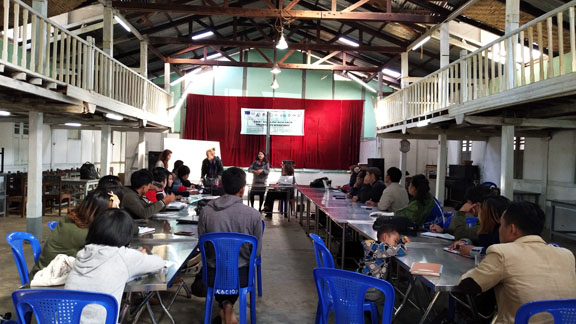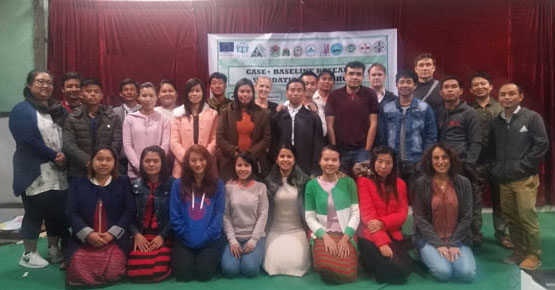From December 10-12, RISE held its CASE+ project Baseline Research Validation workshop. This research was undertaken from September to November by RISE partners in Kachin, Kayan, Karen, Chin, Zomi, Shan, Ta’ang, Lahu and Pa-Oh areas. Consultants from RISE’s iNGO partner, Adventist Development and Relief Agency (ADRA) Myanmar, supported the analysis of the raw data from the survey.
The survey focused on three key components: 1) Out-of-school Children (OOSC), 2) Student Literacy and Numeracy (grades 2-3), and, 3) Teacher competency. 159 schools participated in the survey including community leaders, parents, teachers and children.

In terms of literacy in the RISE network area, it was found that girls reading and writing comprehension was slightly stronger than boys. Naw Ler Htoo, Director of the Karen Teacher Working Group said, “What the research showed us here is our teachers must give more time to boy students. Majority of the boy are always active and fidgety. They’re bored to site still the whole day in the class. That’s why, we need to think about teaching skills on how to handle the boy students in the future.”
The research also indicated that children are more at risk to become OOSC if their parents are uninterested in their child’s school education or held a generally negative view on the benefits of schooling.
Sayarma Koppi, the focal person from the Zomi Development Foundation (ZDF), expressed that, “When we organized the Education Sensitization Event (ESE), we were focusing on parents to be aware about the importance of their child’s education. The event was successful and we would like to have more for participants who live very far remote and who don’t never have a chance to come to the event.”
In most areas, the Literacy assessments were done for Burmese language, however, in Karen and Shan areas they also did the assessment for their local Karen and Shan mother tongues as well.
This was the very first research of its kind in these indigenous areas and the final report is expected to be released in February 2019.

